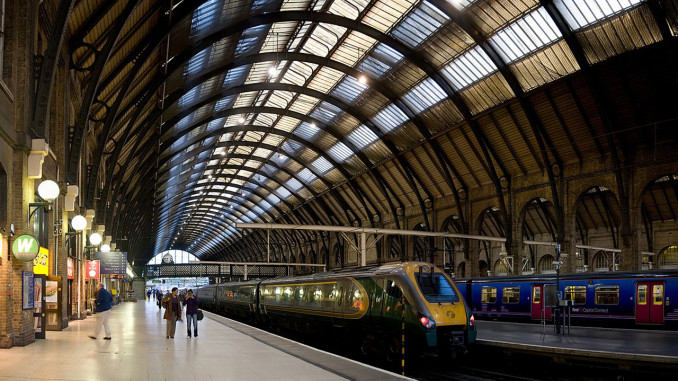
In the United Kingdom (U.K.), more than 50,000 rail workers represented by three unions recently went on strike, bringing rail services throughout the country nearly to a standstill. In many areas, no trains are running, and direct services between Britain’s biggest cities have been shut down. About 89 percent of normal train schedules have been stopped by the strikes. The strikes were planned for last month but were called off when the government and union leaders agreed to wait until after a period of mourning following the death of Queen Elizabeth II.
Rail workers have had a pay freeze for years, but now inflation has hit a near 40-year high of about 10 percent, and workers have had enough.
The strike by rail workers has taken place as 115,000 postal workers walked off the job over two days, and workers in other industries, including dockworkers and garbage workers, have also gone on strike in recent weeks.
At the same time, several unions and community organizations in Britain have also created a coalition called ”Enough is Enough,” which has organized rallies with tens of thousands of people across the country demanding wage increases and reductions in prices, along with increases in other social services to be paid for by tax increases on the super-rich.
As food, rent, mortgage rates, and energy prices have skyrocketed, the largest 350 companies in the U.K. have seen about a 73 percent increase in profits since last year.
Inflation in energy prices has been the worst. Back in April 2022, households were paying about 54 percent more for electricity. And as winter approached, households were facing the possibility of an additional 80 percent increase in electricity costs starting in October, but the British government recently passed a temporary price freeze on energy costs for two years.
But this price freeze still leaves prices too high for many working families in Britain. The price cap sets the energy cost maximum per household at around £2,500 (about $2,772) a year. But just last year, the average annual energy bill was £1,271. So, even with this price freeze, the average bill has still doubled in the past year. And last year about 4.5 million U.K. households went below the official poverty line due to fuel costs. Even with this energy price cap, about 6.7 million households will still fall below the poverty level.
As inflation continues to worsen around the world, British workers could serve as an example of the kind of resistance millions of other workers could wage in other countries.




